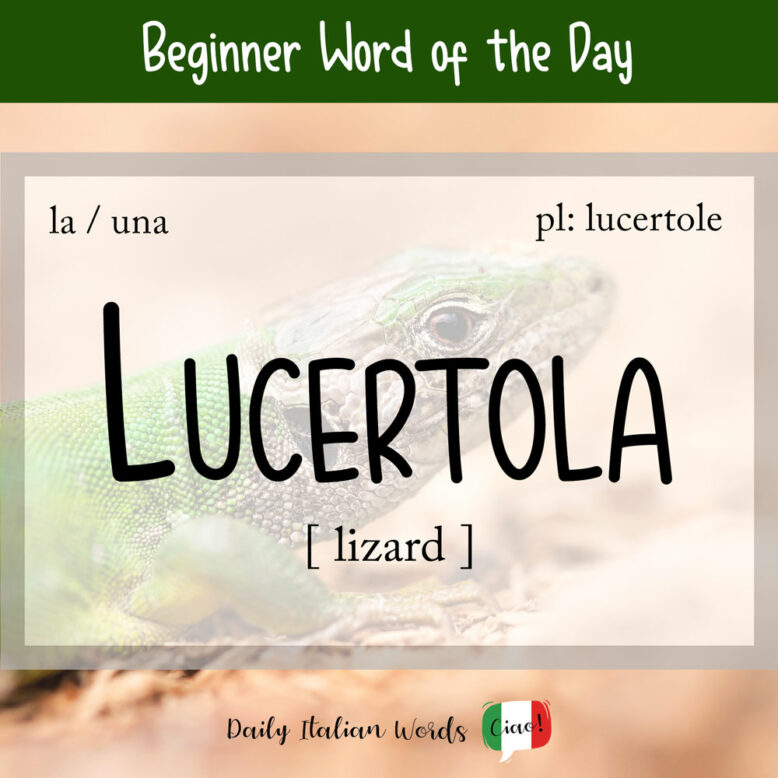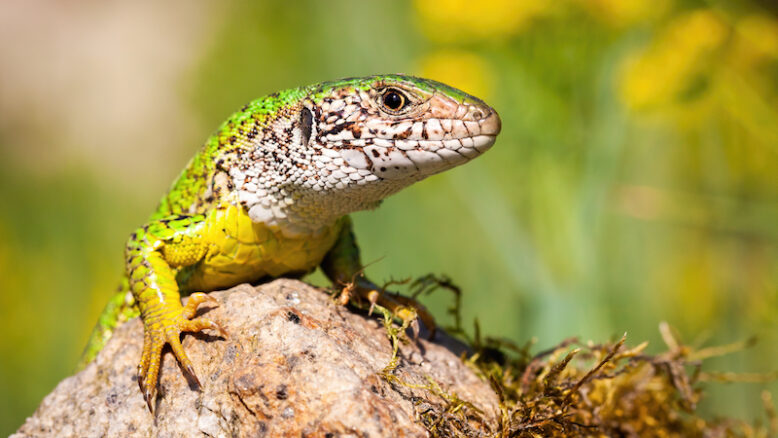Although the words lizard and lucertola share the same Latin origin – the word lacertus which meant lizard, sea fish or muscle – I think many of you would agree that the Italian has a much prettier ring to it!

Lucertola is a feminine singular noun that becomes lucertole in its plural form.
la lucertola
una lucertola
le lucertole
delle lucertole
Sapevi che la lucertola si nutre principalmente di insetti?
Did you know that the lizard feeds mainly on insects?

An idiom that has evolved from the fact that lizards are sun-loving creatures is stare al sole come le lucertole (lit: to stay in the sun like the lizards). As you might imagine, it is used to describe someone who stays out in the sun for long periods of time to get a tan or enjoy its warmth. You can also say essere una lucertola (lit: to be a lizard) to express the same idea.
Mario sta sempre al sole, come le lucertole!
Mario always stays out in the sun.
Campare / vivere di lucertole (lit: to get by / live on lizards), on the other hand, is a less common expression used to describe a person who is very skinny either because they don’t eat much by choice, or have very little to eat.
A much rarer idiom is trovare / avere la lucertola a due code (lit: to find / have the lizard with two tails), which quite simply means to be lucky.
Pelle di lucertola (lizard skin) is the commercial name for the skin of the iguana, used in leather goods for the manufacturing of shoes, handbags, straps, and so on.
Heather Broster is a graduate with honours in linguistics from the University of Western Ontario. She is an aspiring polyglot, proficient in English and Italian, as well as Japanese, Welsh, and French to varying degrees of fluency. Originally from Toronto, Heather has resided in various countries, notably Italy for a period of six years. Her primary focus lies in the fields of language acquisition, education, and bilingual instruction.


